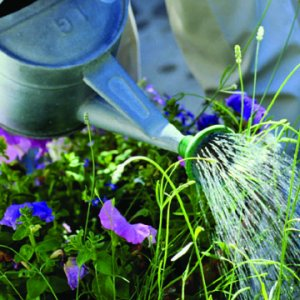Listen to another parable. There was a landowner who planted a vineyard, put a fence around it, dug a wine press in it, and built a watchtower. Then he leased it to tenants and went to another country.
Matthew 21:33
As I was reading the gospel text for this coming Sunday, a nursery rhyme came to mind. You may remember it, too.
Mary, Mary, quite contrary,
How does your garden grow?
With silver bells, and cockle shells,
And pretty maids all in a row.
Scholars debate whether this rhyme refers to Mary Tudor, Queen of England, or Mary Stuart, Queen of Scotland, but regardless, both queens took rather imperfect care of the “gardens” over which they ruled. Both women were devoted to displays of religious fervor and “rightness,” yet both fell far short of the mark of living as Christians, as “little Christs” in their world. Mary Tudor even earned the nickname “Bloody Mary” for her efforts to purge England of religious traitors.
Children’s rhymes such as “Mary, Mary” initially served the dual purpose of learning tools for young children and spoken political commentary for dangerous times. * So what sort of rhyme might we contrive for ourselves in the present day? Perhaps something like this might fit the bill:
Christian, Christian, bone of contention,
How does your garden grow?
With hunger, war, and market bailouts;
Pretty possessions lined up in a row.
Does this rendition sound harsh to your ears? I certainly hope so. These words contain a sad ring of truth for our age, a ring of truth that will (we hope) open our eyes to see reality in a different light. That’s what Jesus did with his teaching parables. These not-so-simple stories held up a mirror to the people, inviting them to peel back the layers of meaning around the words and to see themselves in various locations within the story. Indeed, veiled truth is sometimes the most jarring truth of all with which to be confronted.
In The Message, Eugene Peterson titles this passage “The Story of the Greedy Farmhands.” Given care of the vineyard, workers become greedy to the point of violence in the master’s absence. If this parable is to speak to us today, as keepers of God’s garden/vineyard, how are we doing? Are we taking what does not rightfully belong to us and plundering it at the expense of others? Are we good, productive workers or shiftless, careless hirelings? Perhaps we are looking for the master to return and mete out our idea of appropriate justice to those workers who are falling short of the mark? Then again, what would such justice look like?
Jesus’ words bring us a harsh reminder of how far we fall from God’s will. Our current “gardening methods” will not yield a bumper kingdom crop. As long as people are hungry, as long as war rages, as long as we ravage earth’s natural resources, and as long as the “haves” refuse to level the playing field for all God’s children, then we are like the greedy farmhands.
Thank goodness God does not pay us back in kind, and God does not give up on us–even when we give up on each other. So, I ask you today:
Christian, Christian, how does your garden grow?
* Opie, Peter; Opie, Iona Archibald [1952] (1997). The Oxford Dictionary of Nursery Rhymes. New York City: Oxford University Press.
Copyright (c) 2008, The Rev. Sharron Lucas, all rights reserved. Used by permission.




Leave a Reply